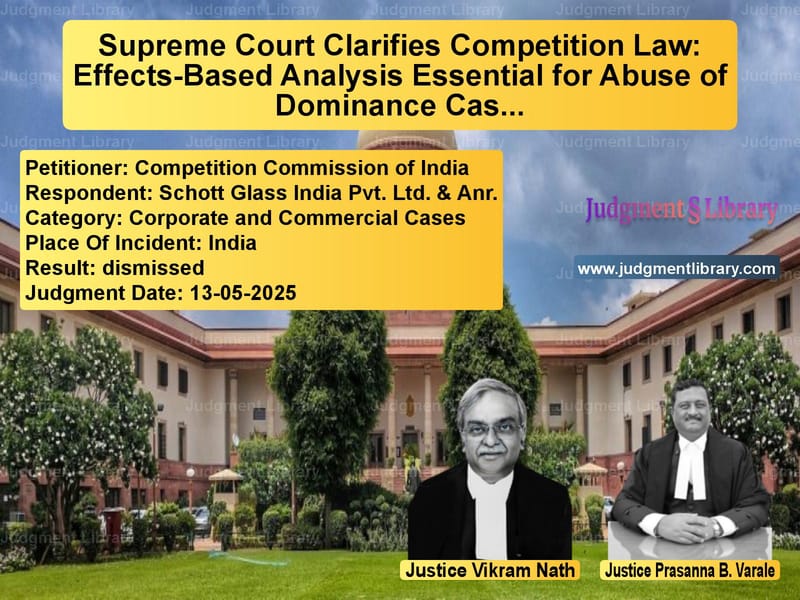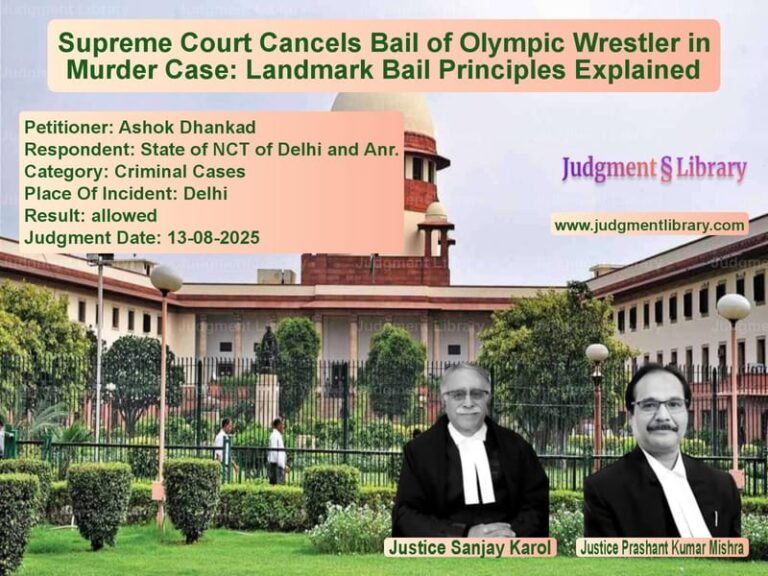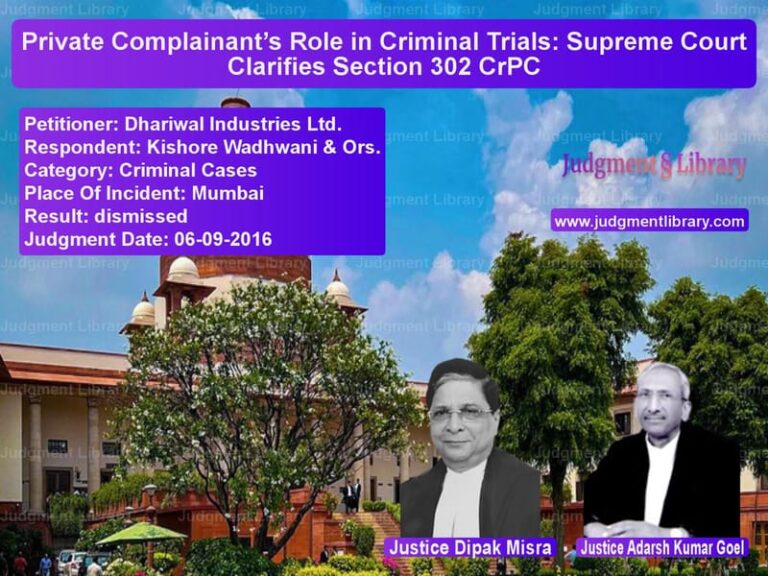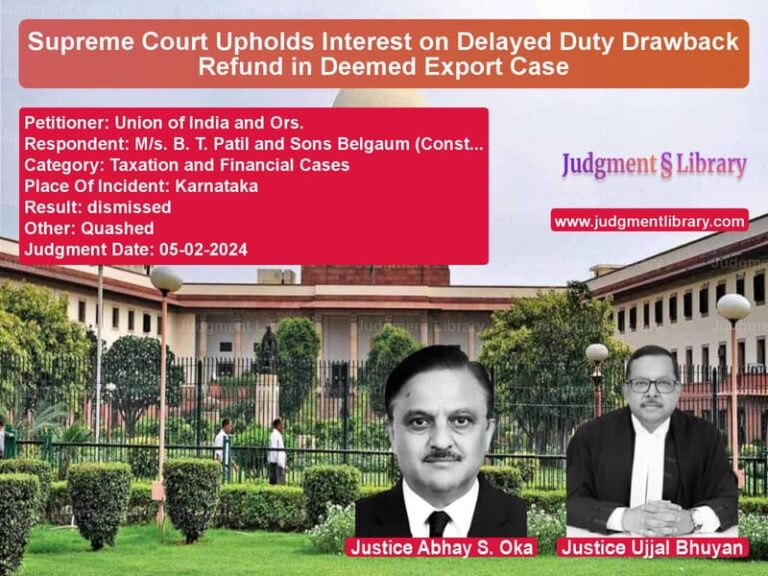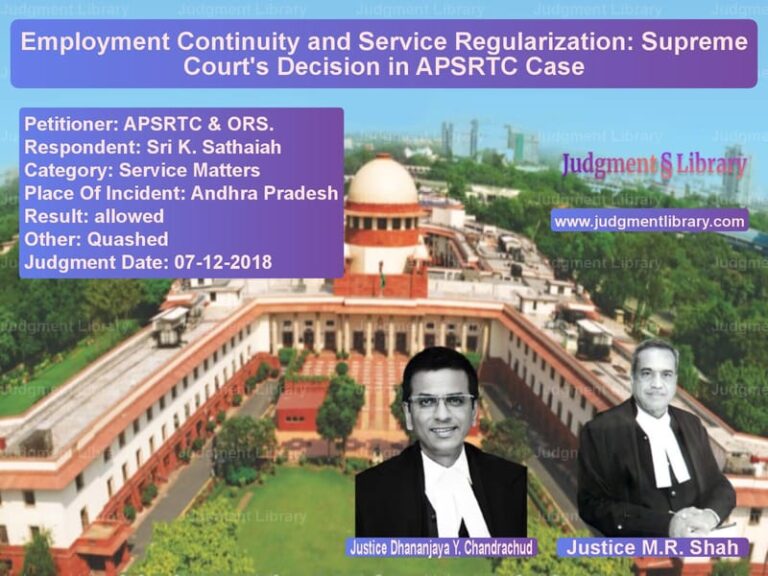Supreme Court Clarifies Competition Law: Effects-Based Analysis Essential for Abuse of Dominance Cases
In a landmark judgment that significantly clarifies India’s competition law landscape, the Supreme Court has delivered a comprehensive ruling emphasizing that mere market dominance is not illegal – only its abuse that causes actual competitive harm can be penalized. The case, which involved allegations against Schott Glass India Pvt. Ltd., the principal domestic manufacturer of neutral borosilicate glass tubing used in pharmaceutical containers, has established crucial principles that will guide future competition law enforcement in India.
The dispute began when Kapoor Glass India Pvt. Ltd., a converter that transforms glass tubing into ampoules and vials, filed a complaint with the Competition Commission of India (CCI) alleging that Schott India had abused its dominant position through various exclusionary practices. The CCI initially found Schott India guilty and imposed a penalty of ₹5.66 crores, but the Competition Appellate Tribunal (COMPAT) set aside this decision, leading to the current appeals before the Supreme Court.
The Core Legal Issues
The Supreme Court identified six key issues that needed resolution in this complex competition law case. These included whether Schott India’s target discount scheme amounted to discriminatory pricing, whether its functional discount arrangements imposed unfair conditions, whether its long-term supply agreement with Schott Kaisha created an illegal margin squeeze, whether the company tied different glass tube products together, whether effects-based analysis is essential under Section 4 of the Competition Act, and whether procedural irregularities vitiated the investigation.
The Court’s analysis began by establishing that Schott India indeed held a dominant position in the relevant market, supplying over 60% of neutral USP-I borosilicate glass tubing in India. However, the Court emphasized that “dominance is lawful; the question is how the power is used.” This fundamental principle set the stage for examining whether Schott India’s business practices actually constituted abuse of this dominant position.
Target Discount Scheme Found Legitimate
The Court thoroughly examined Schott India’s volume-based “target” rebates, which offered discounts ranging from 2% to 12% based on annual purchase volumes. The appellants had argued that these rebates coerced loyalty and prevented converters from sourcing from alternative suppliers.
However, the Court found that “the rebate therefore rose mechanically with volume and with nothing else; identity of the buyer was irrelevant.” The scheme was uniformly available to all converters, and differential outcomes simply reflected different purchase volumes rather than discriminatory treatment.
The Court noted the technical realities of borosilicate glass production, where “furnace tanks operate at temperatures around 1600 °C and cannot be cyclically shut down without inflicting catastrophic refractory damage.” This made volume-based discounts objectively justified as they helped ensure stable furnace utilization and passed on scale economies to customers.
Functional Discounts and Quality Concerns
The Court next addressed the 8% functional discount offered to converters who met certain conditions, including refraining from using Chinese tubing. Schott India had argued this was necessary to address genuine quality concerns and protect patient safety, as some Chinese tubes had been found to have alkali-release values above pharmaceutical standards.
The Court accepted that “each condition is therefore objectively connected with the legitimate aim, patient safety and brand integrity, and is proportionate to it.” Importantly, the scheme was voluntary, and converters remained free to use Chinese tubes if they were willing to forgo the discount.
No Margin Squeeze Found
The long-term supply agreement with Schott Kaisha, which gave the joint venture converter preferential terms, was alleged to create a margin squeeze that made it impossible for equally efficient competitors to operate profitably. However, the Court found this argument fundamentally flawed because “Schott India manufactures tubing only; it neither converts nor sells containers.”
The Court established that for a margin squeeze to exist, three conditions must be met: the dominant firm must operate downstream, the wholesale-to-retail spread must be insufficient for equally efficient competitors, and this must cause competitive harm. Since Schott India didn’t operate in the downstream market, the first condition itself wasn’t met.
Essential Effects-Based Analysis
Perhaps the most significant aspect of the judgment is the Court’s firm endorsement of effects-based analysis in abuse of dominance cases. The Court held that “an effects-based analysis is an obligatory component of every inquiry under Section 4 of the Act.”
The Court explained that “Section 4 of the Act does not per se prohibit dominance; it prohibits the abuse of dominance. Abuse, by definition, is conduct that distorts the competitive process or harms consumers.” This requires authorities to examine whether challenged conduct actually causes or is likely to cause appreciable adverse effect on competition.
The Court pointed to three legislative signposts supporting this requirement: the Preamble’s focus on preventing practices having adverse effect on competition, the definition of dominant position as power to affect the market, and Section 19(4)(l) requiring consideration of contribution to economic development.
In a powerful statement about the purpose of competition law, the Court observed: “Competition law is not designed to humble the successful or to clip the wings of enterprises that have, through industry and innovation, secured a commanding share of the market.” The true purpose is to preserve the process of competition so that rivals may challenge incumbents on merits and consumers enjoy the fruits of efficiency.
Procedural Irregularities
The Court also found serious procedural flaws in the investigation process, particularly the denial of cross-examination rights to Schott India. The DG’s report had relied heavily on statements from converters who were commercially adverse to Schott India, but none were made available for cross-examination.
The Court emphasized that “audi alteram partem is therefore woven into the statute itself” and that “the practical consequences of this violation are obvious.” Cross-examination would have revealed that several converters had expanded output and sourced from imports during the period, facts inconsistent with the foreclosure allegations.
Broader Implications
The judgment carries significant implications for India’s competition policy and economic development. The Court noted that “in today’s global economic climate, prudence is vital” and that “India’s bid to emerge as a global centre for manufacturing, life-sciences and technology will succeed only if regulation rewards scale and intervenes solely when genuine competitive harm is shown.”
The Court warned against “heavy-handed enforcement, divorced from market effects” that would discourage long-term capital and expertise the economy needs. An effects-based standard is “both a constitutional bulwark against arbitrary restraint of lawful enterprise and a strategic necessity” for India’s economic ambitions.
Final Outcome
Ultimately, the Supreme Court dismissed both appeals and upheld the COMPAT’s decision setting aside the penalty against Schott India. The Court found that none of the challenged practices – target discounts, functional discounts, long-term supply agreement, or product aggregation – constituted abuse of dominant position under the Competition Act.
Furthermore, the Court imposed costs of ₹5,00,000 on Kapoor Glass, noting “the wholly unsubstantiated nature of the allegations and the prolonged litigation they have occasioned.”
This judgment represents a significant maturation of India’s competition jurisprudence, bringing it in line with international best practices that focus on actual competitive effects rather than mere market structure. By emphasizing that dominance itself is not illegal and that enforcement must be based on demonstrable harm to competition, the Supreme Court has provided much-needed clarity and certainty for businesses operating in India’s rapidly growing economy.
Petitioner Name: Competition Commission of India.Respondent Name: Schott Glass India Pvt. Ltd. & Anr..Judgment By: Justice Vikram Nath, Justice Prasanna B. Varale.Place Of Incident: India.Judgment Date: 13-05-2025.Result: dismissed.
Don’t miss out on the full details! Download the complete judgment in PDF format below and gain valuable insights instantly!
Download Judgment: competition-commissi-vs-schott-glass-india-p-supreme-court-of-india-judgment-dated-13-05-2025.pdf
Directly Download Judgment: Directly download this Judgment
See all petitions in Corporate Compliance
See all petitions in unfair trade practices
See all petitions in Company Law
See all petitions in Contract Disputes
See all petitions in Corporate Governance
See all petitions in Judgment by Vikram Nath
See all petitions in Judgment by Prasanna Bhalachandra Varale
See all petitions in dismissed
See all petitions in supreme court of India judgments May 2025
See all petitions in 2025 judgments
See all posts in Corporate and Commercial Cases Category
See all allowed petitions in Corporate and Commercial Cases Category
See all Dismissed petitions in Corporate and Commercial Cases Category
See all partially allowed petitions in Corporate and Commercial Cases Category

